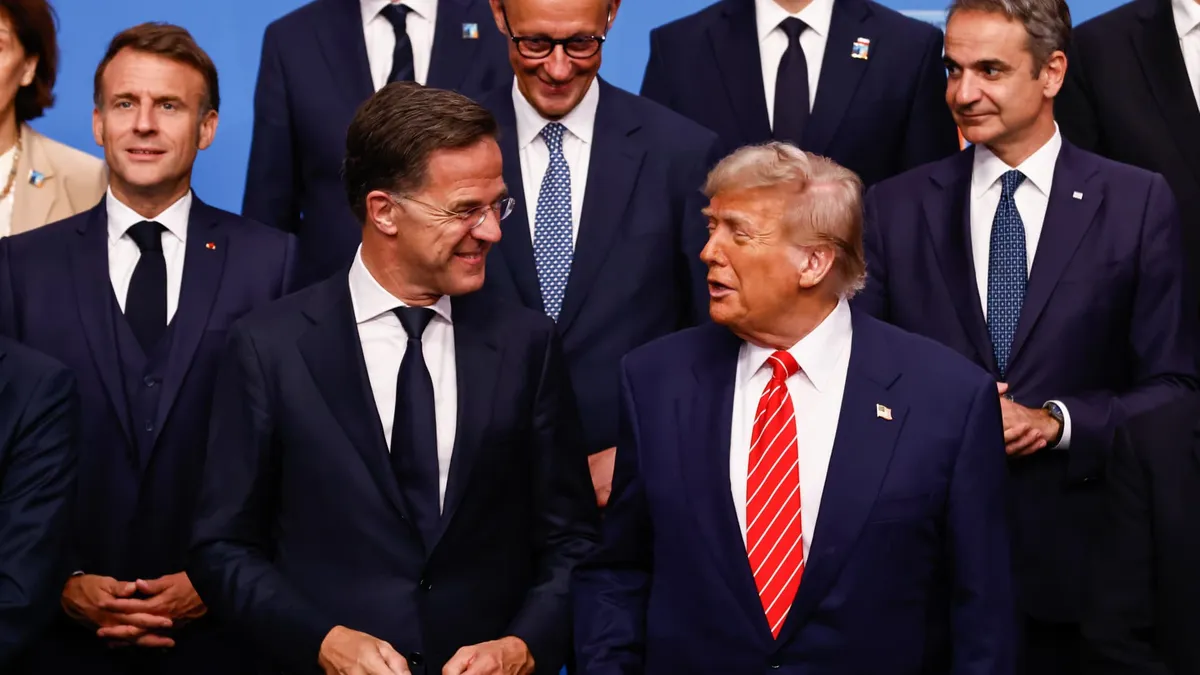
On Wednesday, NATO allies reached a significant milestone by agreeing to more than double their defense spending target from 2% of gross domestic product (GDP) to 5% by 2035. This decision marks the most decisive move from the alliance in over a decade, underscoring a united front against evolving security threats.
In a joint declaration, NATO emphasized its commitment to collective defense in the face of profound security challenges, particularly the long-term threat posed by Russia to Euro-Atlantic security and the ongoing menace of terrorism. The allies committed to investing 5% of their GDP annually on core defense requirements and defense-related spending by 2035 to fulfill individual and collective obligations.
The breakdown of the 5% target includes at least 3.5% of GDP dedicated to pure defense spending, with the remaining funds allocated to essential security and defense-related infrastructure. This investment aims to enhance civil preparedness, stimulate innovation, and bolster the defense industrial base across member states.
NATO has mandated that member states submit annual plans outlining a credible, incremental path to achieve this ambitious spending goal. This requirement follows concerns raised by some member countries, especially Spain, which has yet to meet the previous target of spending 2% of GDP on defense.
This historic decision comes amidst heightened tensions in the Middle East and the ongoing conflict between Ukraine and Russia. The shift in defense spending targets has been largely influenced by years of pressure from former U.S. President Donald Trump, who urged European and Canadian allies to shoulder more of the burden for collective defense.
During the summit, NATO also reaffirmed its unwavering commitment to collective defense as enshrined in Article 5, which states that an attack on one ally is an attack on all. This declaration comes in response to uncertainties regarding U.S. reliability in supporting this crucial aspect of NATO's foundation. The statement emphasized that NATO remains united in protecting its one billion citizens and defending the principles of freedom and democracy.
NATO Secretary General Mark Rutte addressed the summit, describing the agreement as a catalyst for a quantum leap in the alliance's collective defense capabilities. He highlighted that this deal would not only enhance security but also create jobs, reflecting the significant commitments made by allies to address pressing threats.
Rutte acknowledged that this was just the beginning of efforts needed to strengthen NATO's defense capabilities, emphasizing the importance of innovation and swift action. He stated, "The decisions made today will make NATO much stronger and fairer." The resolve of the allies is clear: they are committed to Article 5 and to standing firm together.
In the aftermath of the summit, Finnish President Alexander Stubb described the atmosphere as "cool, calm, and collected." He noted a sense of self-congratulation among members, recognizing this as a historic meeting that reaffirms NATO's roots in collective self-defense against threats like Russia.
Stubb remarked on the positive reactions from both Trump and Rutte, stating that there was a sense of satisfaction among the leaders despite the challenging circumstances. He added that the Europeans have realized the urgency of the situation, stating, "The Americans are happy, and the Europeans have woken up and smelled the coffee."
German Foreign Minister Johann Wadephul commented on Spain's shift in perspective, emphasizing that unity among NATO members is crucial. He stated, "One against 31 member states makes no sense," reinforcing the message that NATO would remain cohesive. Wadephul also highlighted Germany's commitment to the 5% spending target, indicating Berlin's readiness to take a leadership role in European defense.
The U.S. has acknowledged the renewed commitment from Europe, marking a pivotal moment in the transatlantic alliance as it prepares to face future security challenges together.